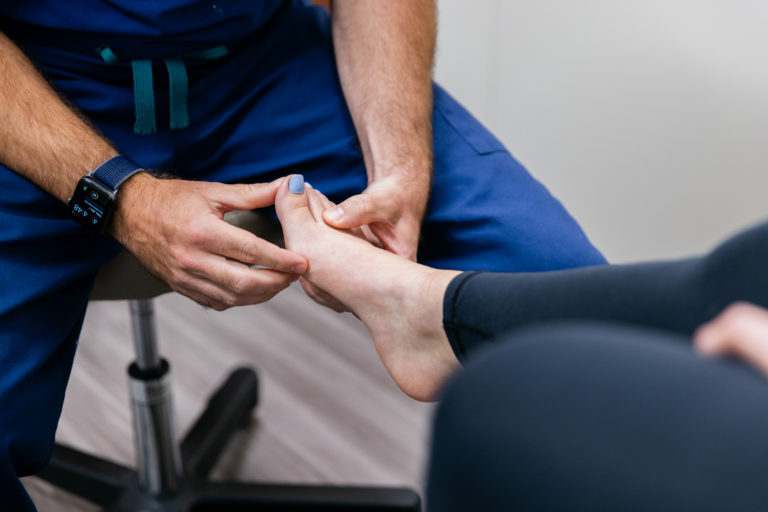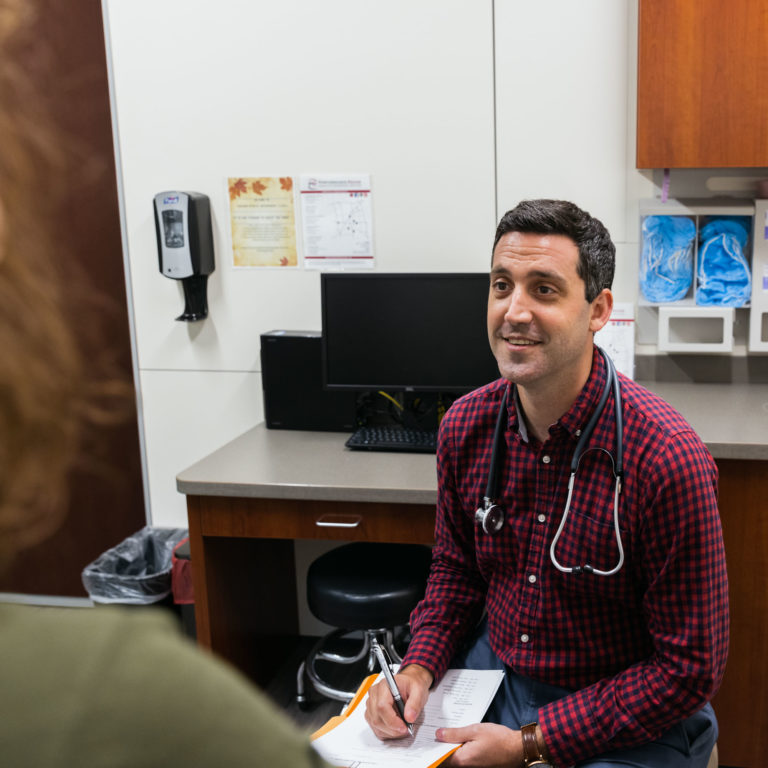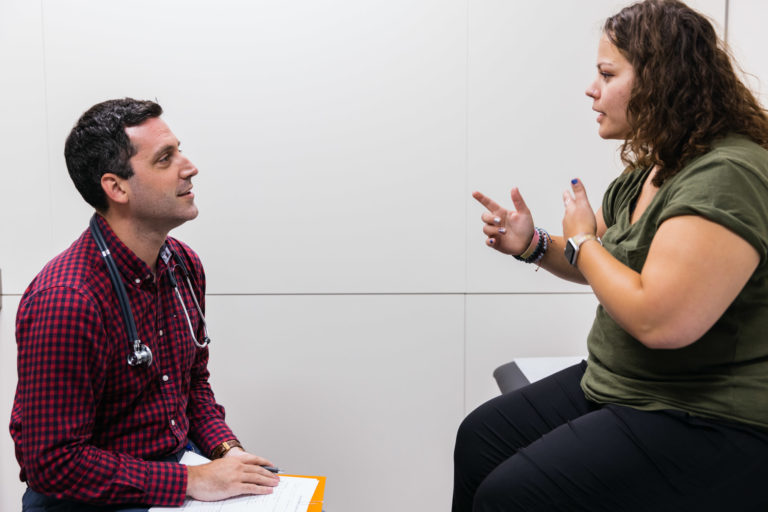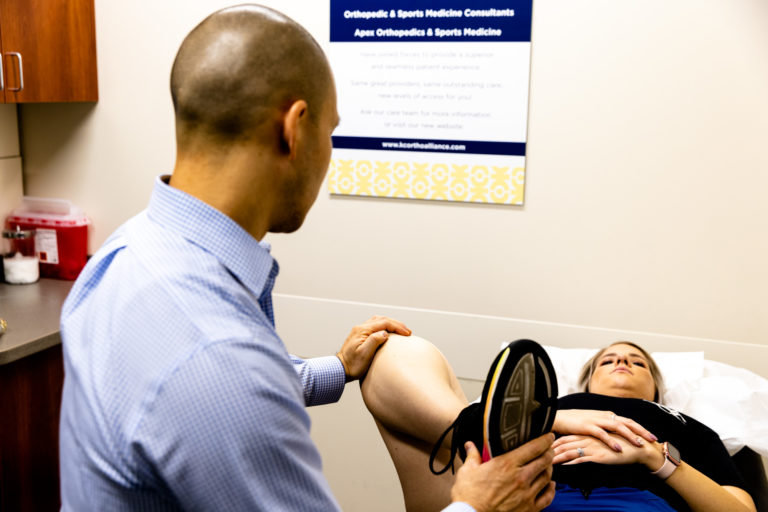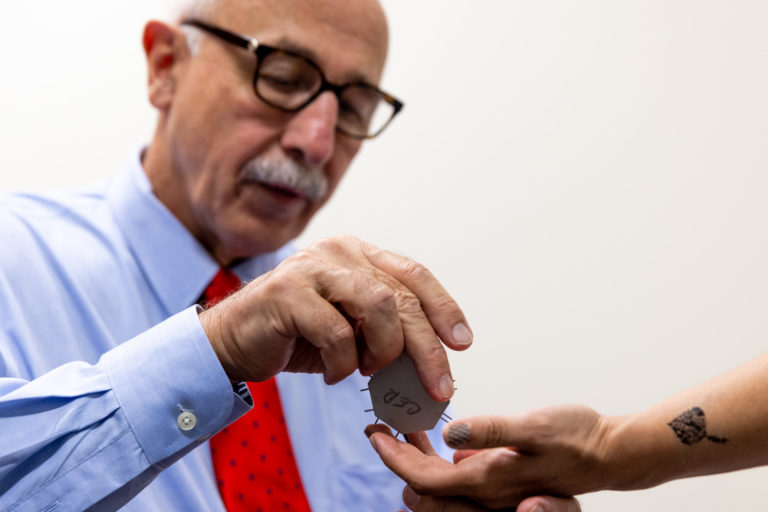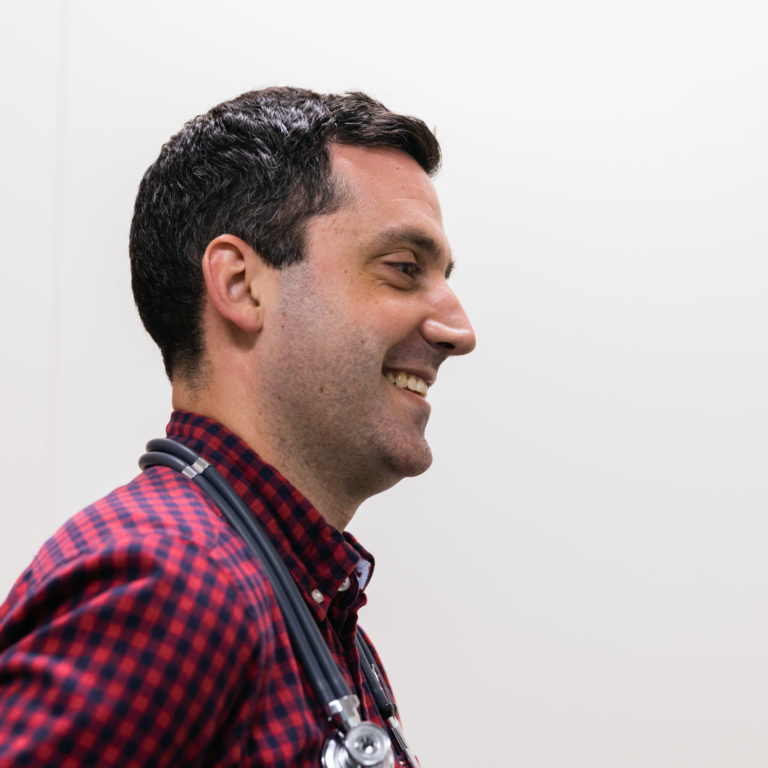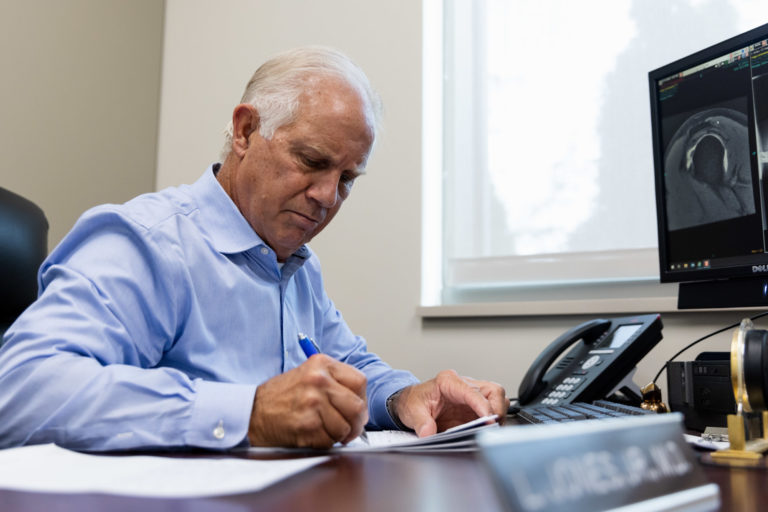Ankle Arthroscopy in Kansas City
Ankle Arthroscopy
Getting you back in the game with professional treatment.
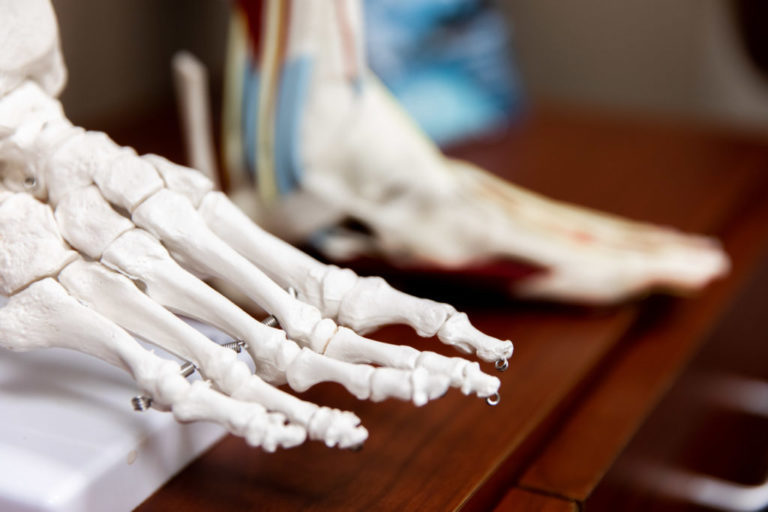
Understanding the Basics Behind Ankle Arthroscopy
What is Ankle Arthroscopy?
Getting you back in the game with professional treatment.
Your body relies on many joints to function properly, but sometimes those joints give out from wear and tear.
Pain in the ankle joint can make even everyday tasks more difficult. With ankle arthroscopy in Kansas City from Kansas City Orthopedic Alliance, our team can safely treat your ankle pain without open surgery—allowing you to get back to living your life.
Ankle arthroscopy is a minimally invasive procedure, which allows surgeons to see inside the ankle joint utilizing a tiny camera. Our physicians generally exhaust and explore every option before recommending arthroscopy or more invasive procedures.
An initial examination with your KCOA physician will allow us to recommend the best treatment for your individual needs. Our practitioners provide the comprehensive care you need so you can return to the activities you enjoy.
Deciding on an ankle arthroscopy in Kansas City is a decision that typically involves guidance from your primary care doctor and orthopedic physician.
When you choose Kansas City Orthopedic Alliance, one of our highly-trained orthopedic foot and ankle specialists will conduct an initial evaluation to better understand your condition. After a complete review of your results, your provider will then discuss the best treatment options for you.
Other common symptoms that may require an ankle arthroscopy include:
- Reduced range of motion
- Swelling
- Weakness
- Stiffness
- Bruising
- Numbness
- Tingling
- Completely immobile or “locked” joint
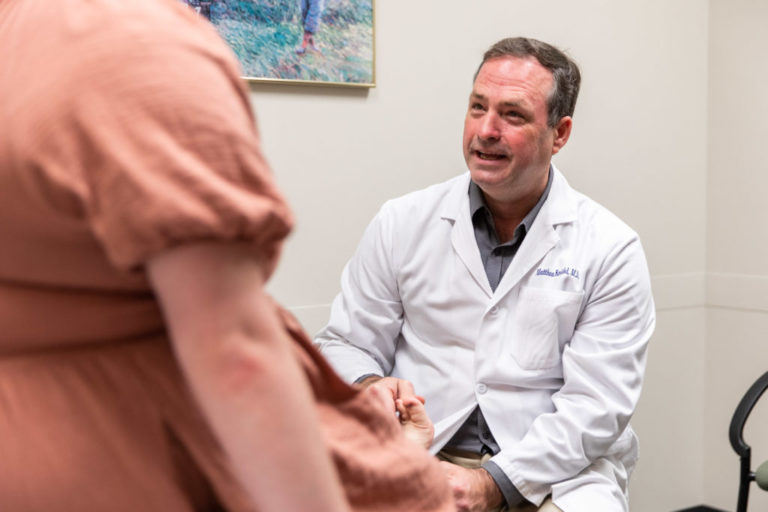
Kansas City Orthopedic Alliance Foot & Ankle Injuries Assessment
Assessing the Injury
Determining the proper treatment for your foot and ankle injury starts with an assessment from one of our experienced providers.
You can think of foot and ankle pain as a spectrum, with some instances being more severe than others. The KCOA orthopedic specialists always focus on each individual patient and their concerns before creating a treatment plan.
Therefore, during your initial appointment, we will often ask questions such as:
The answers to these questions help shape the next steps of the assessment process and guide our physical examination. After a proper assessment, we often begin with a physical examination to help determine the origin point of your pain. In some cases, advanced testing may be required for a full diagnosis.
- Does your pain currently limit you or your activities?
- Does walking or putting weight through your foot increase your symptoms?
- Has your pain progressed or worsened recently?
- Have you experienced any tingling or numbness in your foot that makes tasks difficult?
- Did you notice or hear a popping sound at the time of your injury?
- Have you noticed any change in your symptoms that has made it more challenging to function?
- What are your lifestyle goals?
- How has pain affected those goals?
Examination
X-Ray
Also called radiographs, an X-ray captures a picture of the ankle, heel, or lower leg. Orthopedic physicians may order an X-ray to rule out the possibility of a fracture (broken bone), osteoarthritis, or other bone-related conditions.
Magnetic Resonance Imaging (MRI)
MRI captures images of muscles, bones, intervertebral discs, and tendons to help provide information other tests can’t detail. During an MRI, you will lie on a table that slides into a tube-shaped scanner. The machine creates a magnetic field around you, using pulsed radio waves to form the MRI images.
CT Scan
A computerized tomography (CT) scan can provide a series of X-ray images taken from the ankle, showing the bones, blood vessels, and soft tissue in your body. A CT scan ultimately provides more detailed information than a regular X-Ray.
Treatment Alternatives
Generally, surgery is not the first choice for treatment at Kansas City Orthopedic Alliance. Only after we’ve explored and exhausted every potential non-invasive option will our physicians recommend a surgical procedure, such as an ankle arthroscopy.
Non-surgical treatments for ankle injuries can include:
Physical Therapy
Having a trained expert guide you through the recovery process is often the best route to take to avoid surgical procedures of the foot and ankle. A physical therapist can use exercises, stretches, deep tissue work and modalities like heat and cold to treat many issues without surgery.
Medications
Your doctor may recommend over-the-counter NSAIDs (Non-steroidal anti-inflammatory drugs, such as Advil) or prescription medications. Especially with NSAIDs, you should always talk to your doctor to ensure they are the right treatment for you.
Injections
Cortisone injections can help reduce inflammation, and the effects tend to last for 3 to 6 months before you might need another one. Many people manage their pain with injections and physical therapy.
Regenerative Medicines
Regenerative medicines like stem cell injections or platelet-rich plasma can help nourish worn or damaged tissue. This option works best if you have mild-to-moderate ankle pain.
Symptoms
Common Signs and Symptoms of Foot & Ankle Injuries
With so many different parts working together in your feet and ankles, there are many potential causes of pain. And each of those causes has a unique set of symptoms.
Ankle injuries often cause pain and swelling in the area that might stretch from the bones on the sides of your ankle down to your toes, making it difficult to walk or move the ankle properly. In less severe cases, you may feel pain and stiffness in the area. When a patient visits one of our KCOA offices, a skilled orthopedic specialist will ask you questions regarding your symptoms, what aggravates/alleviates your symptoms, and whether you have attempted prior therapies. Next comes a thorough physical exam. We will then review any images you bring with you and/or take new images. After determining the cause of your pain, we can discuss if shoulder arthroscopy will work best for your needs.
Causes
Causes of Foot & Ankle Pain
The body has different kinds of joints, and they all face different challenges. The foot and ankle combine for a complex region of the body, totaling 26 bones and 33 small joints that experience daily wear and tear. Soft tissue protects the joints and bones and is made up of muscles, tendons, ligaments, nerves, and blood vessels.
With all of these different bones in your feet and ankles, injuries and arthritis are a common problem. Even if you aren’t an athlete, injuries can occur during even the most mundane tasks, like stubbing your toe or dropping something on your foot. They can even happen with a simple misstep.
Fracture can range dramatically in severity, from tiny breaks that are nearly undetectable, to significant injuries causing deformity. Our specialists are trained to diagnose and catch them all.
The range of severity when it comes to injuries in your feet and ankles also varies. Some issues, like sprains and strains, can be treated with rest, icing, and other conservative methods. In other cases, such as a full fracture or torn ligament, an ankle arthroscopy in Kansas City may be required.
F.A.Q.
Frequently Asked Questions
Kansas City Orthopedic Alliance is here to help.
Our care is personal. Our team is knowledgeable. And we’re more available than ever.
With access to board-certified specialists across Kansas City, we have the tools to meet almost every musculoskeletal condition.
Our Locations
Overland Park, Kansas
10777 Nall Ave Suite 300 Overland Park, KS 66211Leawood, Kansas
3651 College Blvd. Leawood, KS 66211Kansas City, Missouri
Saint Luke's Medical Plaza #1 4320 Wornall Rd., Ste. 610 Kansas City, MO 64111Belton, Missouri
Belton Regional Campus 17067 S Outer Rd #301 Belton, MO 64012Blue Springs, Missouri
St. Mary’s Medical Center, Main Entrance 203 NW R.D. Mize Road, Suite 200 Blue Springs, MO 64014Shawnee Mission, Kansas
7450 Kessler St ste. 140 Merriam, KS 66204Prairie Star (Lenexa, Kansas)
Prairie Star 23401 Prairie Star PkwyBldg. B, Ste. 220 Lenexa, KS 66227

